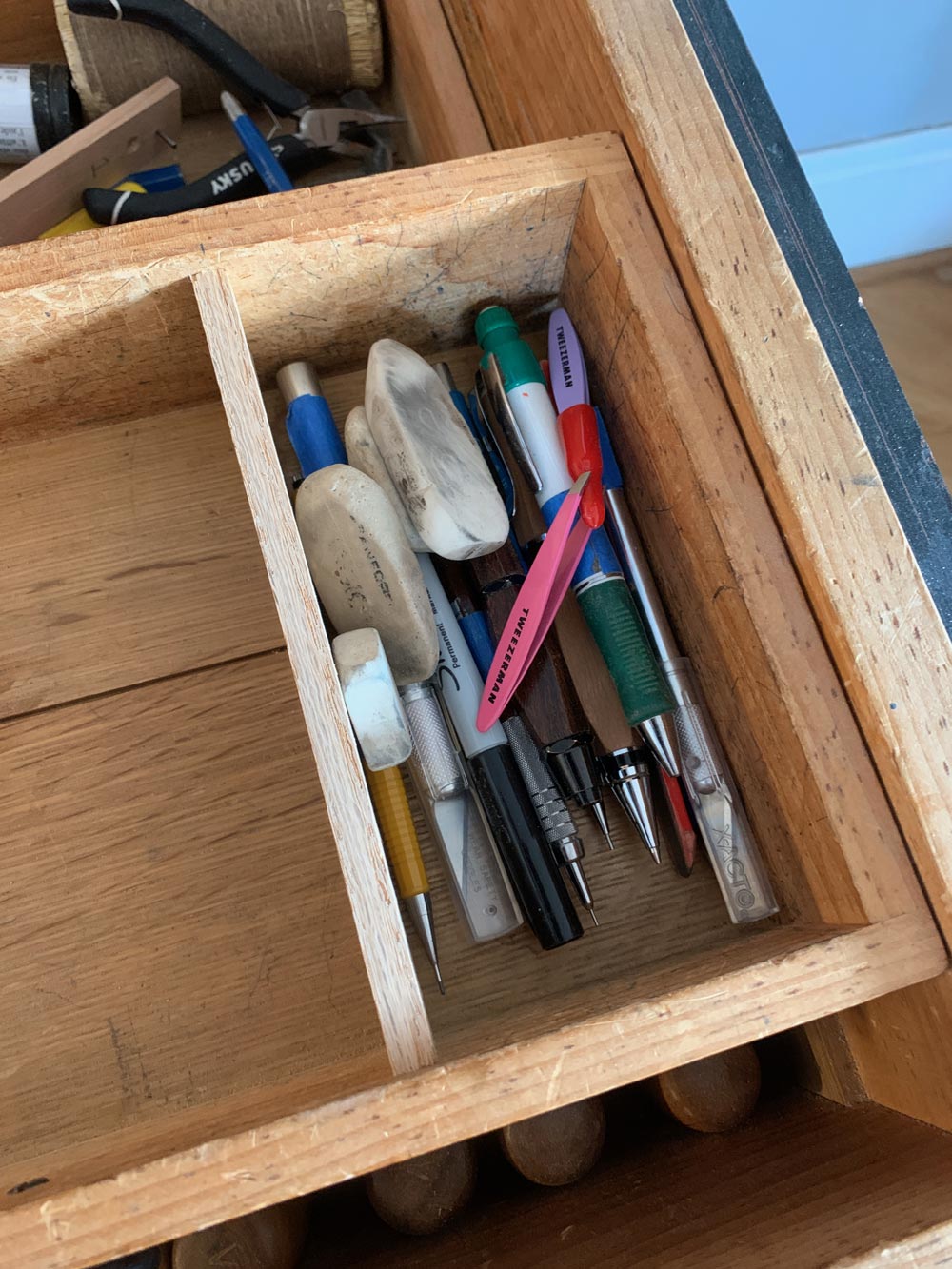
Anyone who has read “The Anarchist’s Tool Chest” or worked in my shop knows that I dislike French-fitted cubbyholes for tools. I prefer my tools to roam free and migrate amongst my tills as they rise and fall in importance to the job at hand.
I still think this way, but this morning I took a small step to both corral my pencils and tip my hat to my Lie-Nielsen 60-1/2 block plane. I added a small oak divider to keep my pencils, knives and 6” rules in one spot. And I added a smaller divider for my block plane at the other end of the till.
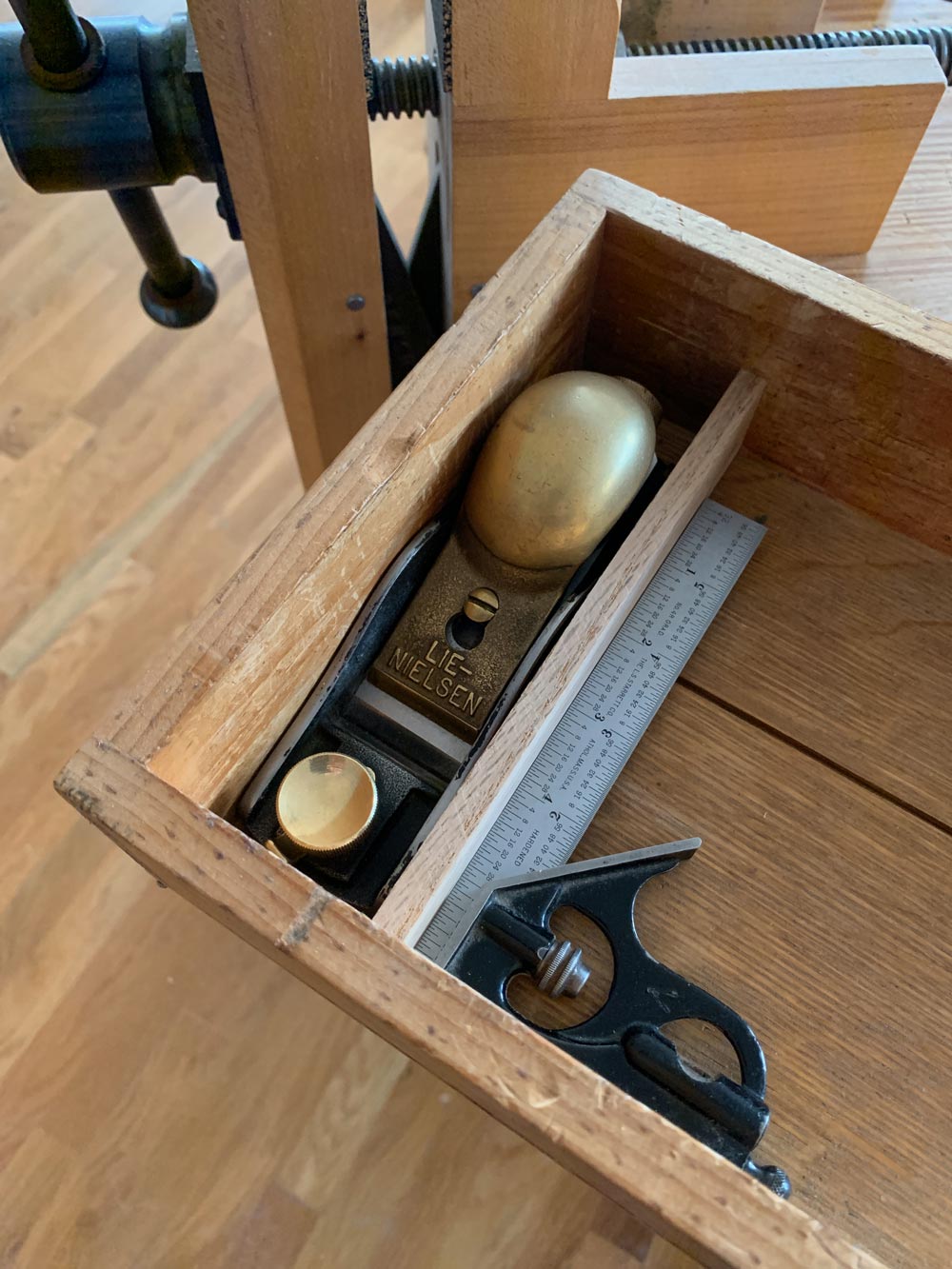
The pencil divider has been a long time coming. I hoard my mechanical pencils, rules and erasers and the like (you have to in a group shop or you will end up pencil-less). And like Nesquik or Tang, they soon dissolve into the rest of the till, hiding under the other tools and becoming invisible.
The divider for the block plane is simply an admission that this block plane has been with me for 23 years and isn’t going anywhere.
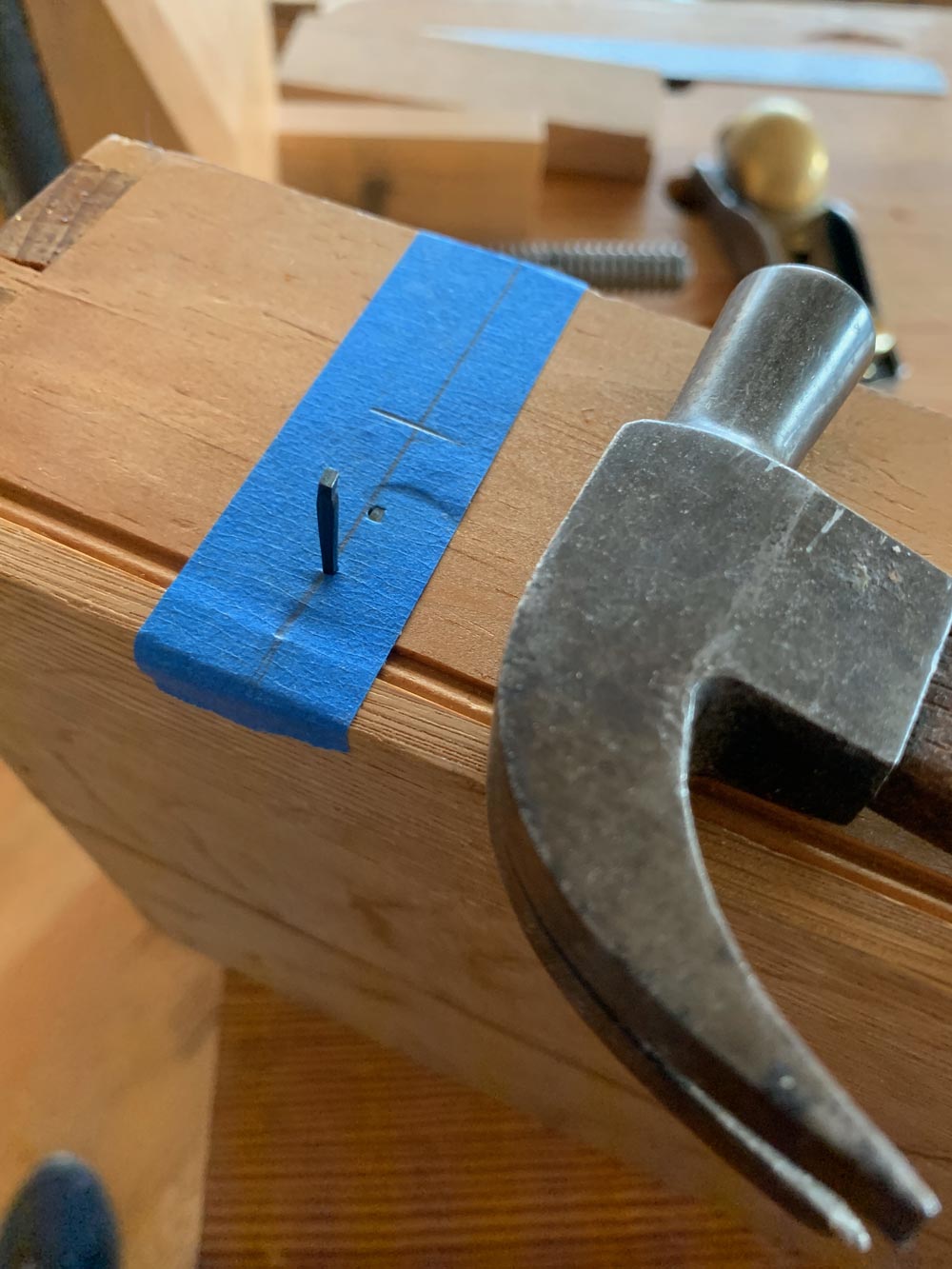
The dividers are oak scraps that I secured with headless brads only. So if this turns out to be a bad idea, it’s reversible.
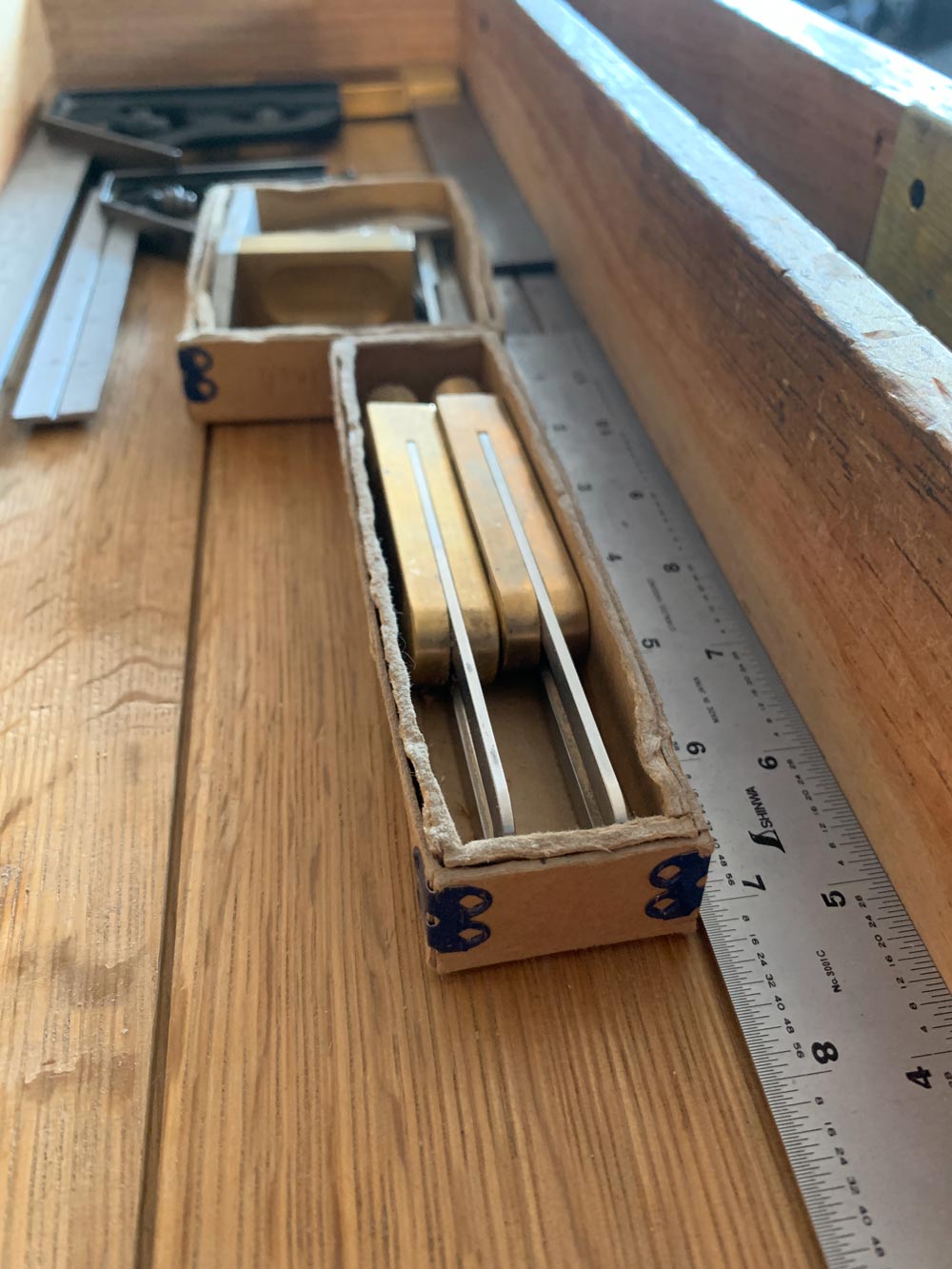
One other small tip: to restrain and protect valuable tools, such as my sliding bevels, I keep them in small cardboard boxes. The boxes can migrate (a good thing) but they never become invisible (also a good thing).
OK, now to work.
— Christopher Schwarz

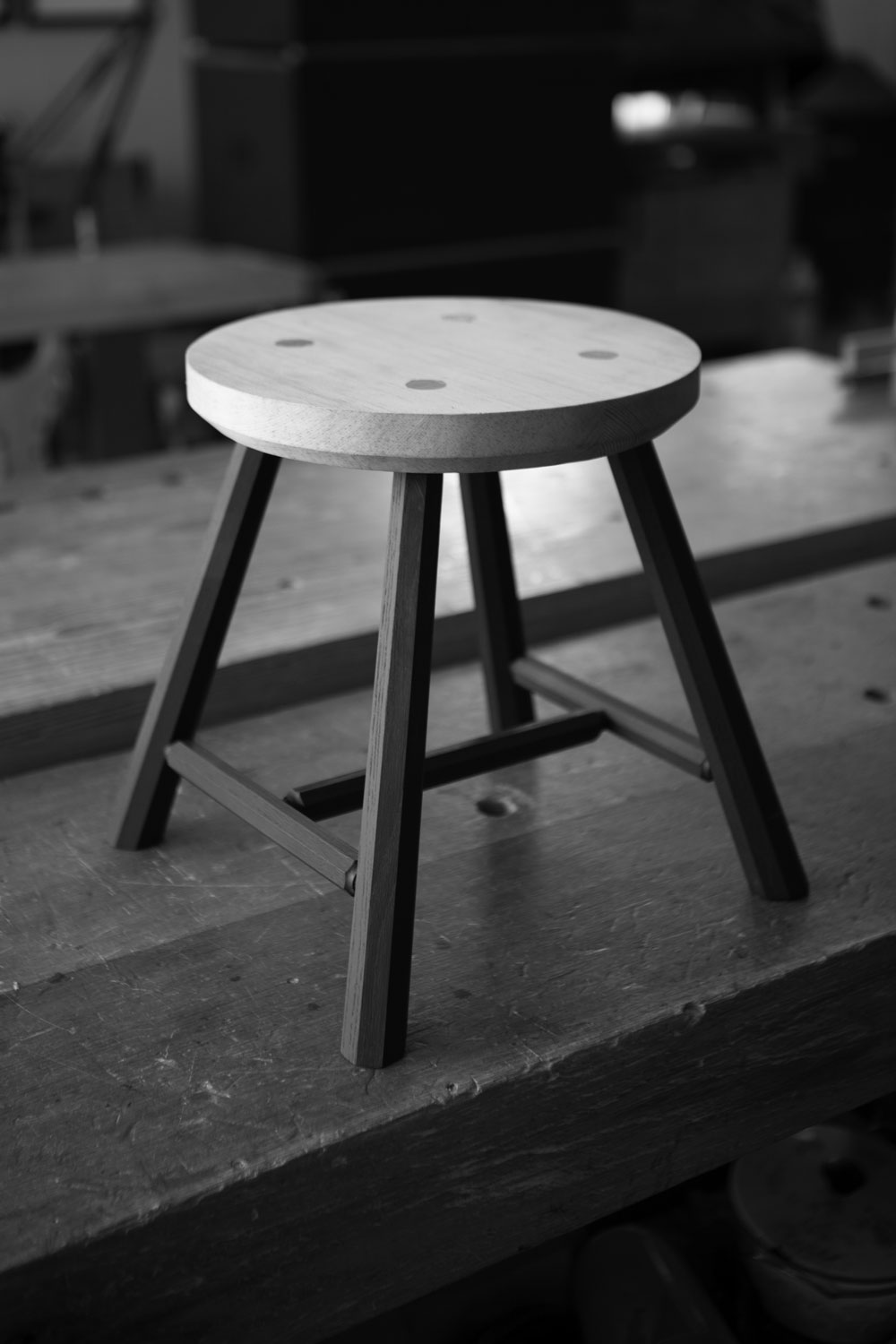
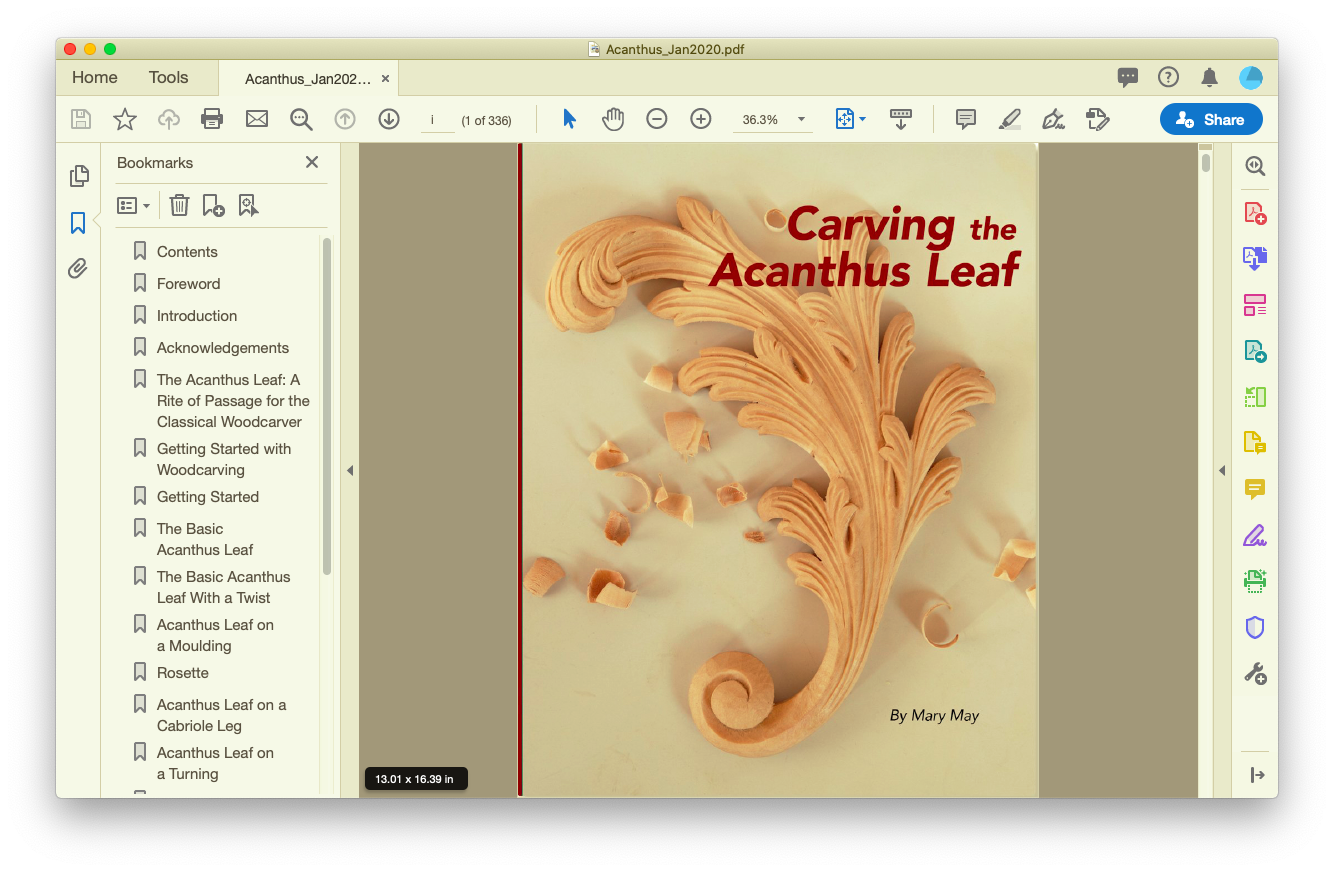
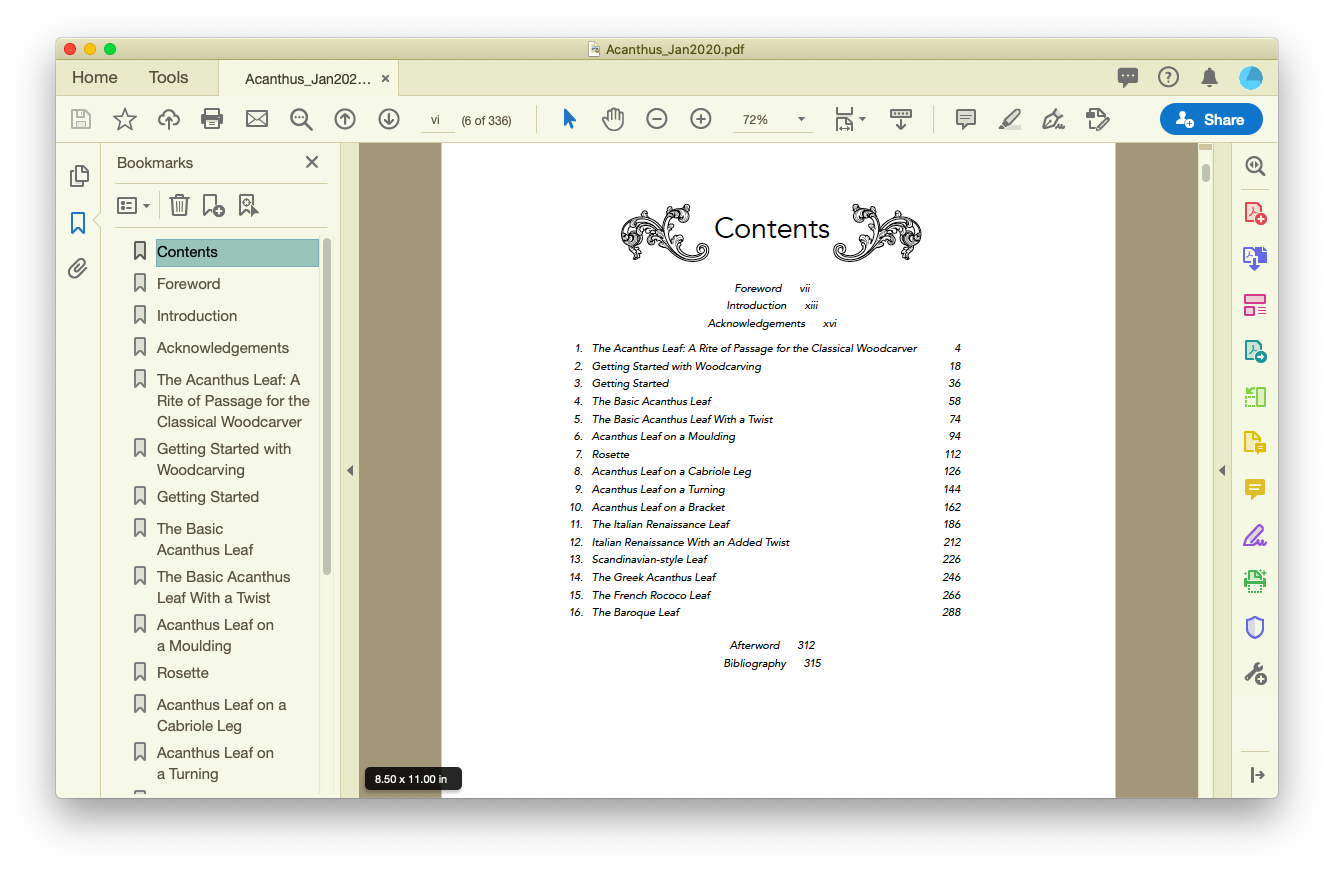
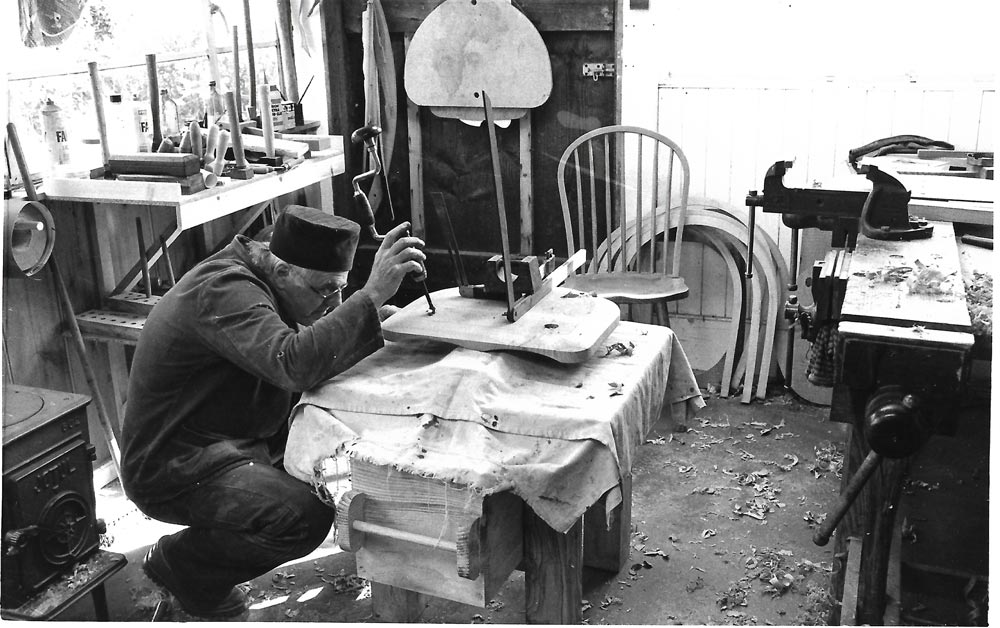
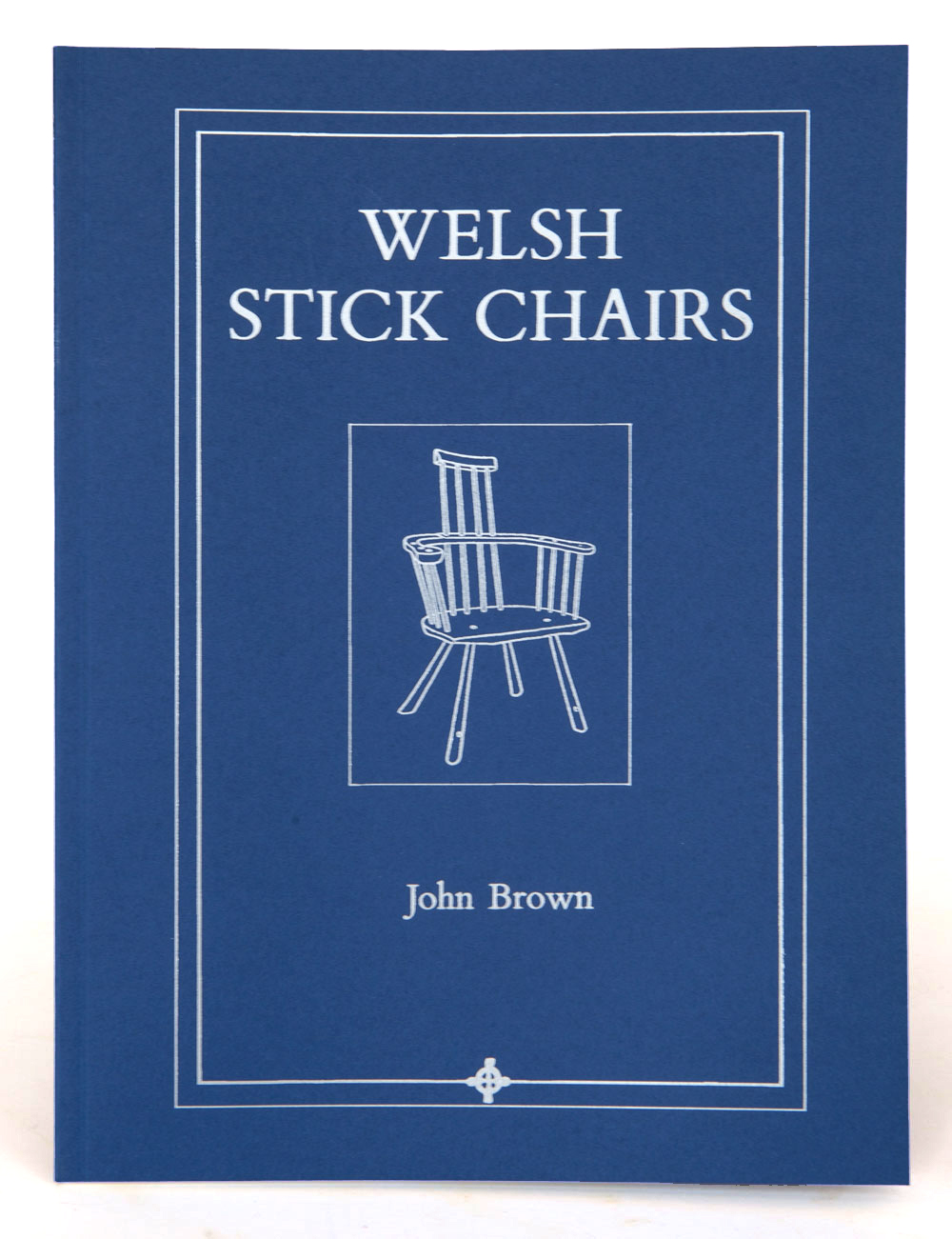 We are approaching the de-Industrial Revolution, or New Age. Empires disintegrate. Nations re-emerge. We must look back and see how it was done before, not to copy, but to learn. Some of us hope that Wales will again become a Nation. We must look at our history, and each of us in our way pluck something from it and revive it. How did my forefathers go about their life? What equipment did they possess? What was the spirit of the making? I have no doubt the word ecology was as strange to them as it was to me a few years ago (what is the Welsh for ecology?). They preserved their environment because they didn’t have the monster tools to wreck it. No flails for them, they laid their hedges. Now I have the knowledge they didn’t have and I try to preserve my environment. Science is destructive, it has wrecked the land, but only those old fundamentals, agriculture and handicrafts, can restore it.
We are approaching the de-Industrial Revolution, or New Age. Empires disintegrate. Nations re-emerge. We must look back and see how it was done before, not to copy, but to learn. Some of us hope that Wales will again become a Nation. We must look at our history, and each of us in our way pluck something from it and revive it. How did my forefathers go about their life? What equipment did they possess? What was the spirit of the making? I have no doubt the word ecology was as strange to them as it was to me a few years ago (what is the Welsh for ecology?). They preserved their environment because they didn’t have the monster tools to wreck it. No flails for them, they laid their hedges. Now I have the knowledge they didn’t have and I try to preserve my environment. Science is destructive, it has wrecked the land, but only those old fundamentals, agriculture and handicrafts, can restore it.
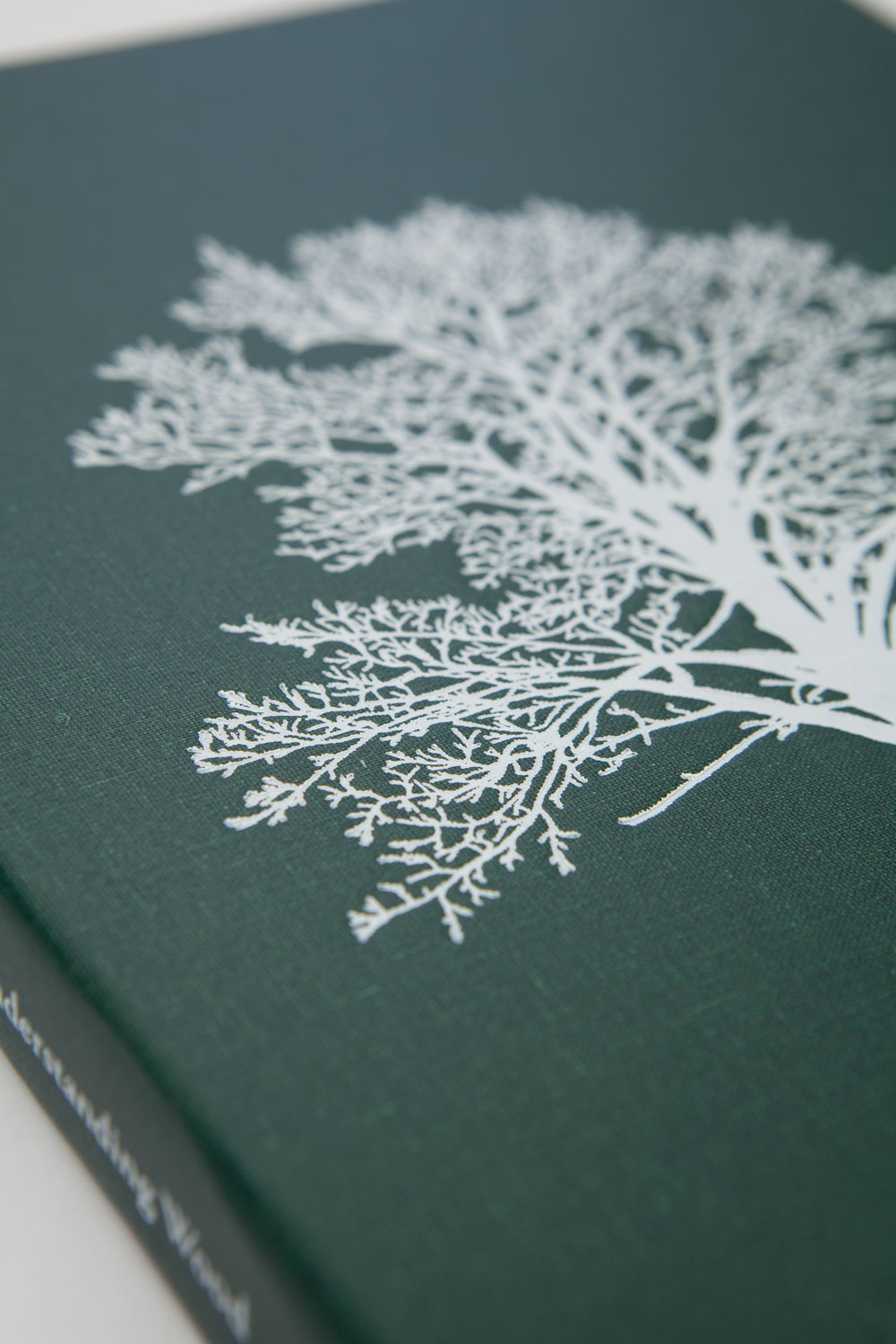 “The Solution at Hand” hand was our sleeper hit of 2019. We love Wearing’s writing, but we weren’t sure how people would react to a book comprised entirely of his jigs for handwork (you sold the sucker out in record time). And “With the Grain” is now in its fifth printing with us. That book has been a huge hit with people who are interested in getting into woodworking and want to learn about trees and how they work.
“The Solution at Hand” hand was our sleeper hit of 2019. We love Wearing’s writing, but we weren’t sure how people would react to a book comprised entirely of his jigs for handwork (you sold the sucker out in record time). And “With the Grain” is now in its fifth printing with us. That book has been a huge hit with people who are interested in getting into woodworking and want to learn about trees and how they work.